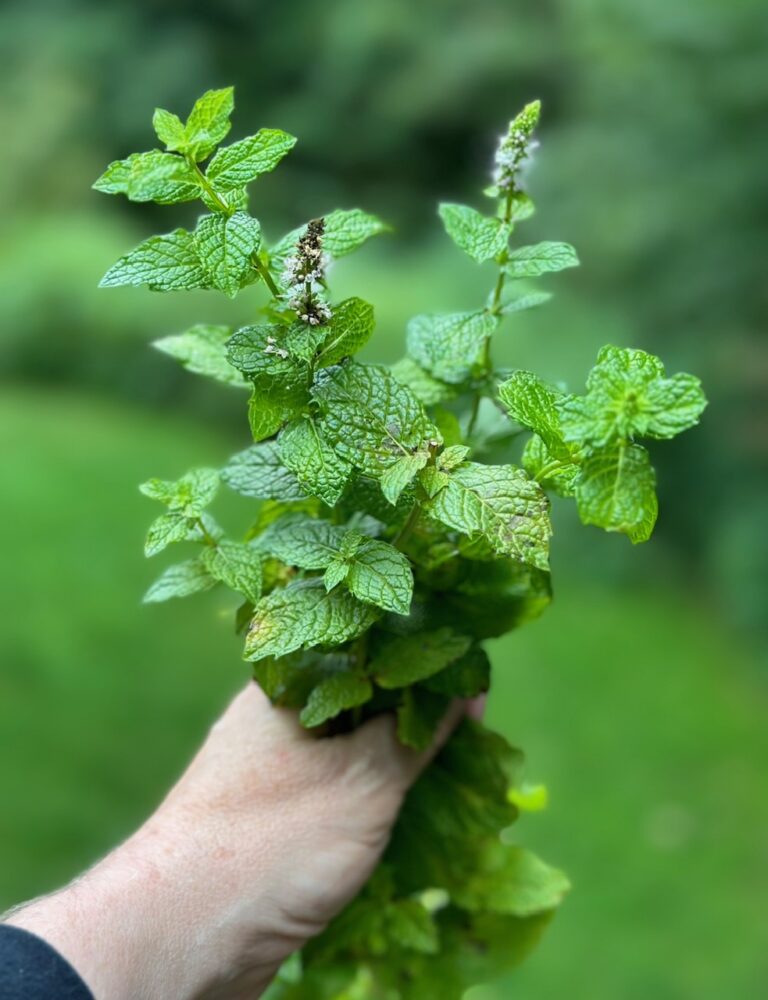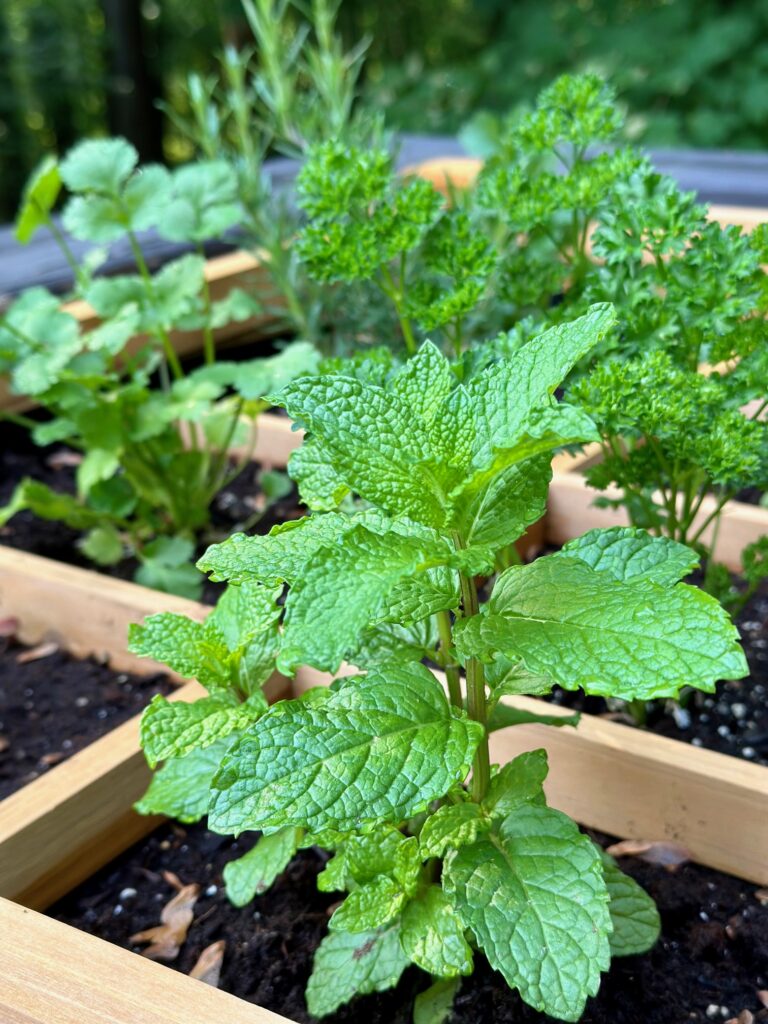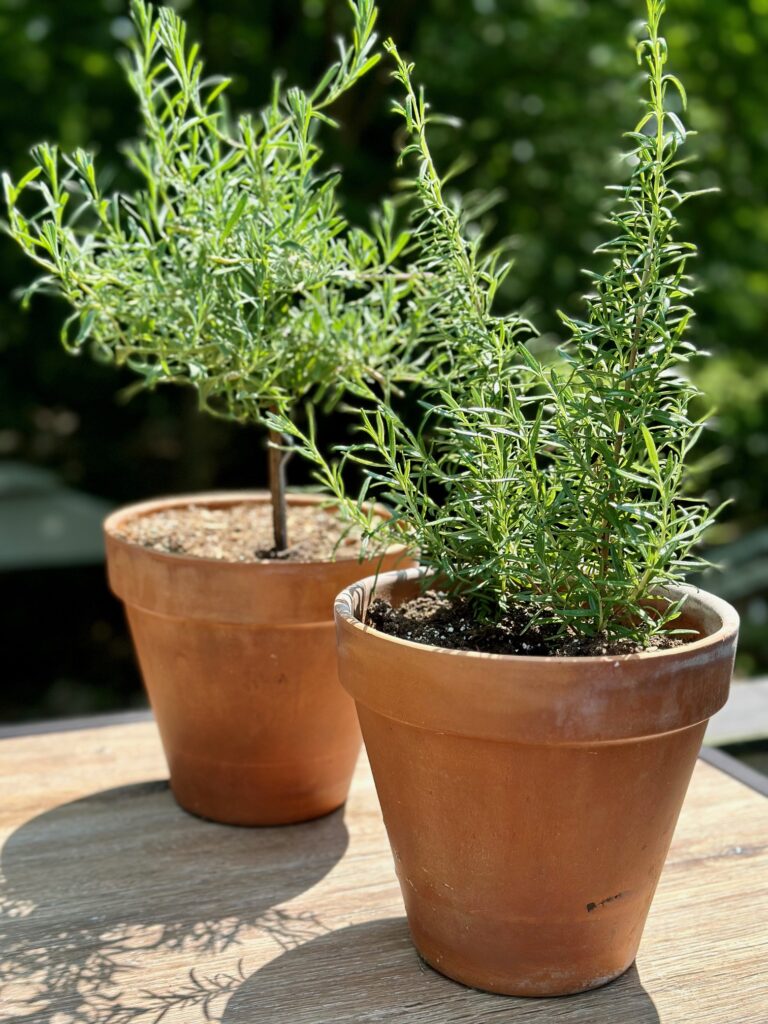What You Need to Know About Fertilizing Herbs: Nurturing Nature’s Bounty
Welcome to the world of herb gardening! Whether you’re a seasoned green thumb or just starting your herbaceous adventure, one thing remains constant: the importance of fertilizing your herbs. Fertilizers play a vital role in providing essential nutrients that promote healthy growth and bountiful harvests. In this article, we’ll delve into the fascinating world of herb fertilizers and explore the best practices to ensure your herbs thrive. So grab your gardening gloves and let’s dig in for What You Need to Know About Fertilizing Herbs: Nurturing Nature’s Bounty!
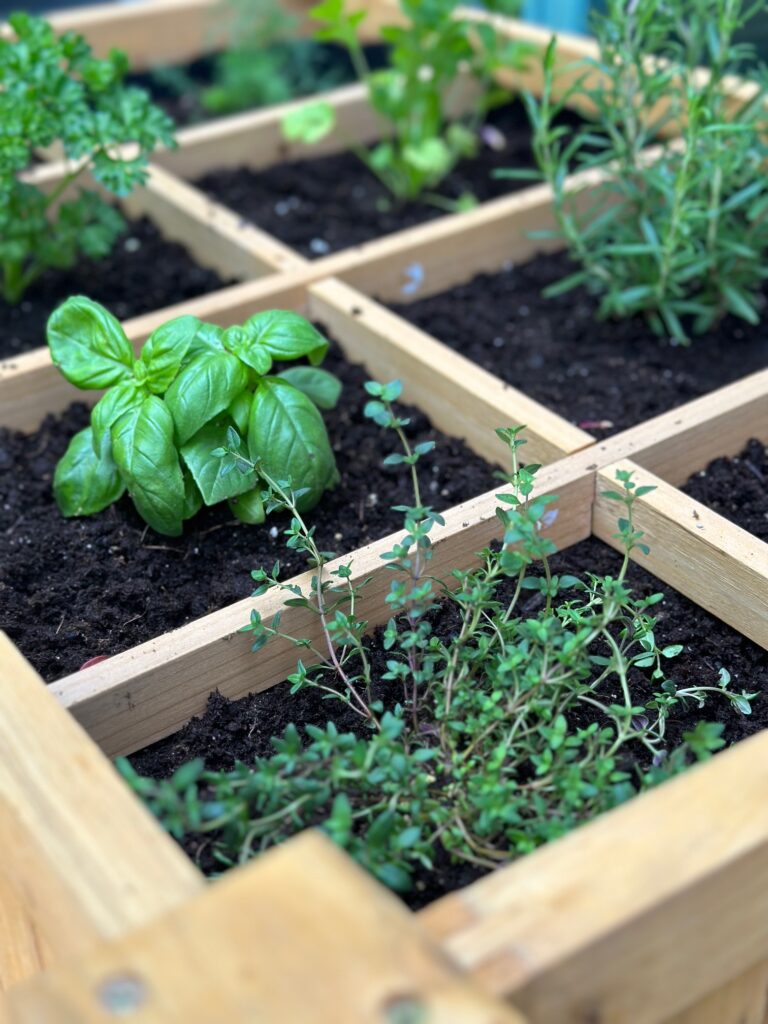
Shop this Raised Garden Bed 8 Pocket Herb Garden
Content may contain affiliate links. When you shop the links, we receive a small commission at no cost to you. Thanks for supporting my small business.
The Power of Organic Fertilizers
When it comes to nurturing your herbs, organic fertilizers are the superheroes of the gardening realm. Unlike synthetic fertilizers, organic options harness the power of nature, promoting long-term soil health and sustainable plant growth. Organic fertilizers, such as compost tea, worm castings, and homemade fish emulsion, enrich the soil with organic matter, replenishing essential nutrients for your herb plants. They not only feed your herbs but also improve soil structure and microbial activity, fostering a thriving herb garden.
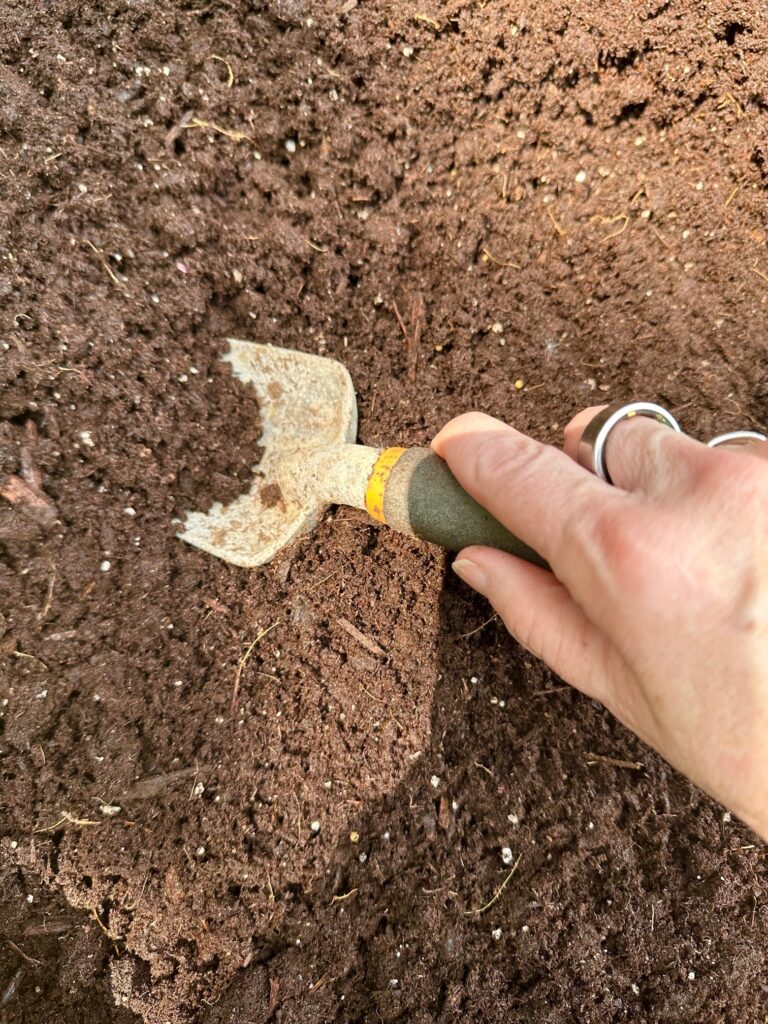
Optimal Timing for Herb Fertilization: Harnessing Growth Potential
Timing is crucial when it comes to fertilizing your herbs. The growing season, typically in early spring, is the perfect time to give your herbs an extra boost. During this period, herb plants are gearing up for vigorous growth, making it an ideal opportunity to provide them with a nutrient-rich diet. Remember, different herbs have varying fertilization needs, so be sure to research each herb’s specific requirements for the best results.

Slow-release fertilizers: Nourishing Herbs Gradually and Sustainably
Slow-release fertilizers are your herb garden’s best friends. These granular wonders gradually release nutrients over time, ensuring a steady supply to your herbs. They are particularly beneficial for slow-growing and perennial herbs, providing sustained nourishment for months. Slow-release organic fertilizers are available in a variety of formulations, each catering to different nutrient requirements. Look for a balanced NPK ratio (nitrogen, phosphorus, and potassium) tailored to your herb’s needs.

Embrace the Magic of Homemade Herb Fertilizers
For resourceful herb enthusiasts, homemade fertilizers are a fantastic option. From compost bins to kitchen scraps, your household waste can be transformed into nutrient-rich goodness for your herbs. Coffee grounds, eggshells, and grass clippings are just a few examples of readily available organic materials that can be repurposed into homemade fertilizers. So go ahead and give your herbs a taste of your own composting magic.

Optimizing Fertilization for Container-Grown Herbs
If you’re growing herbs in containers, they have specific fertilization needs. Container plants rely solely on the nutrients provided by the potting mix, as opposed to the nutrient-rich garden soil. Choose a high-quality potting mix enriched with organic matter and slow-release granular fertilizers. Additionally, regular watering can wash away nutrients, so it’s important to replenish them using liquid fertilizers specifically formulated for container-grown herbs.
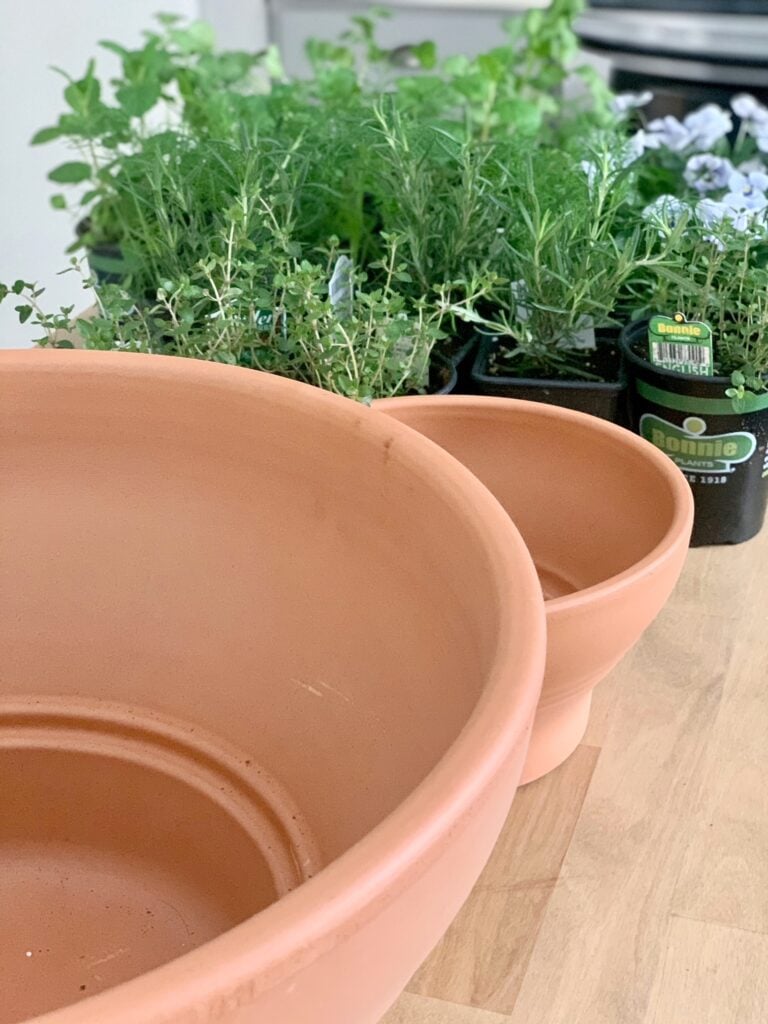
Catering to Herb-Specific Nutrient Preferences
Different herbs have different appetites for nutrients, and understanding their individual preferences is essential for their well-being. While some herbs, like heavy feeders, require more fertilization, others thrive with minimal fertilizer applications. Leafy greens such as basil and parsley generally benefit from higher nitrogen content, promoting luscious foliage. Woody-stemmed herbs like rosemary ,thyme and lavender on the other hand, prefer lower nitrogen levels to encourage robust growth.
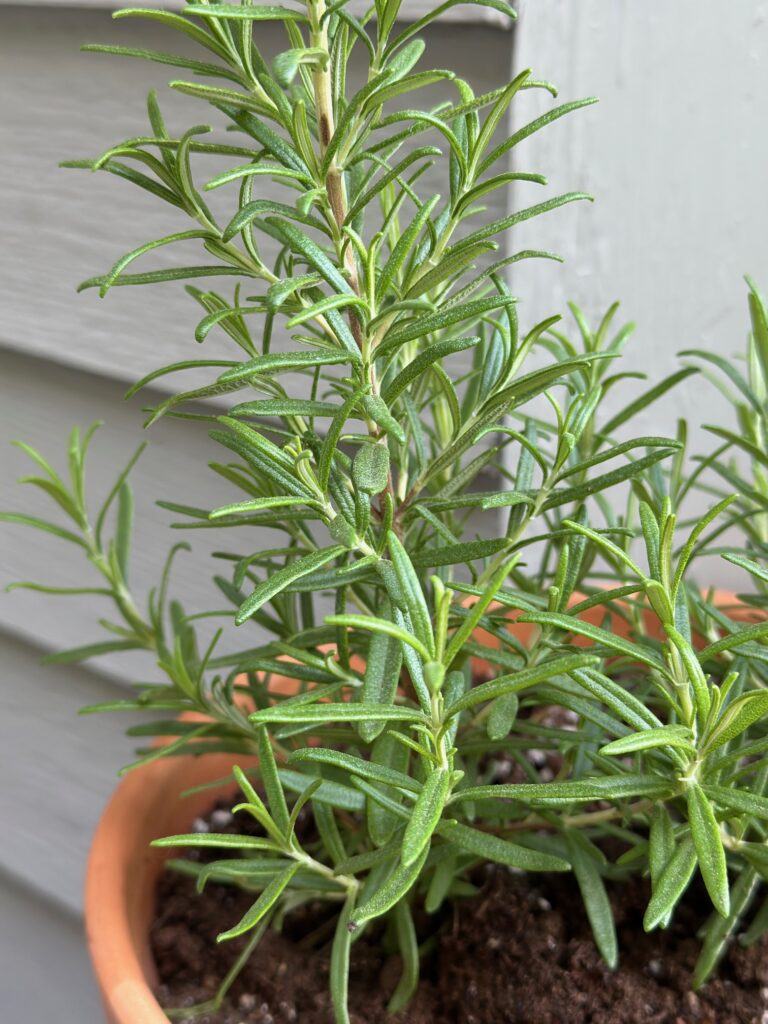
The Organic Arsenal
The organic aisle is your go-to spot for herb fertilizers. Products like bone meal, feather meal, cottonseed meal, and seaweed fertilizers provide abundant nutrients and enhance soil fertility. These organic options support healthy plant growth and contribute to overall ecosystem health by promoting beneficial microbial activity, improving soil structure, and increasing nutrient availability for your herbs. Embracing the organic arsenal of herb fertilizers nourishes your herbs and fosters sustainable gardening practices.

Watering and Fertilizer Uptake
Watering and fertilizer uptake are closely intertwined aspects of herb care. Proper watering practices play a vital role in ensuring effective nutrient absorption by herbs. When watering, it’s important to provide enough moisture to activate the fertilizer and aid in its distribution throughout the soil. Adequate soil moisture helps dissolve the fertilizer, making it available for root uptake. On the other hand, overwatering can lead to nutrient leaching, where valuable fertilizers are washed away before the plants can benefit from them. Striking the right balance between watering and fertilizing is crucial to optimize nutrient uptake and promote healthy herb growth. Regularly monitor soil moisture levels and adjust watering accordingly, ensuring that the herbs receive the necessary nutrients for robust development.
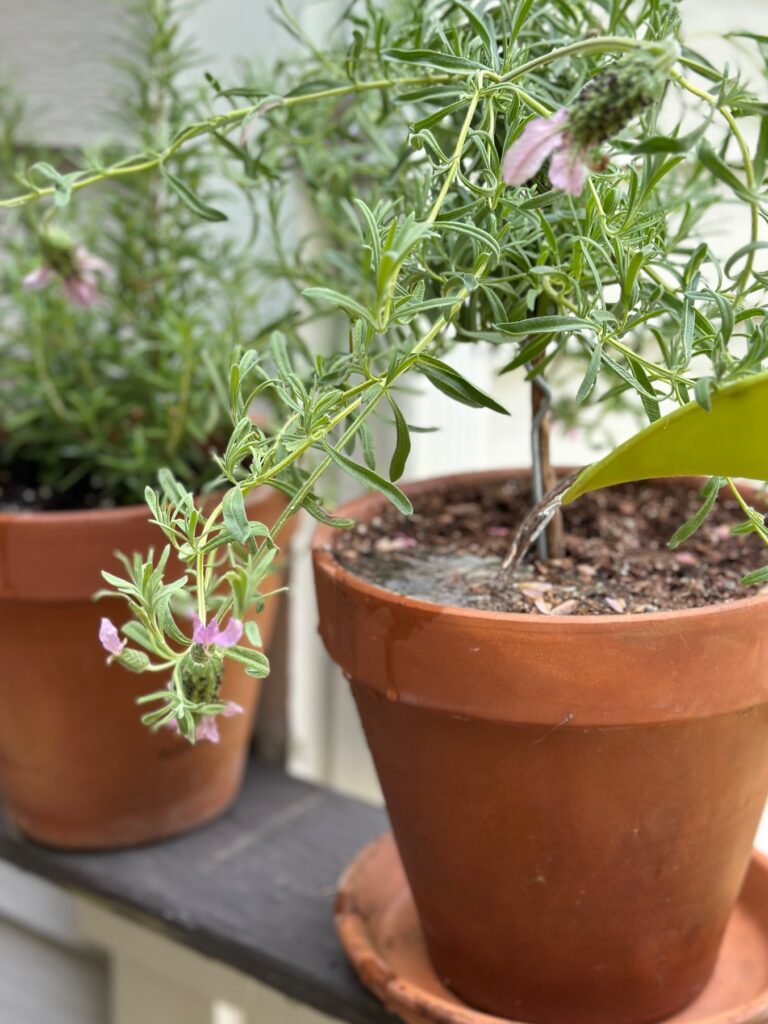
Signs of Nutrient Deficiencies and Excesses in Herbs
Recognizing signs of nutrient deficiencies and excesses is essential for maintaining the health of your herb garden. Nutrient deficiencies can manifest in various ways, such as yellowing or browning leaves, stunted growth, and poor flowering or fruiting. For instance, nitrogen deficiency often results in pale, yellowish leaves, while a lack of phosphorus may cause stunted growth and delayed maturity. On the other hand, nutrient excesses can also have detrimental effects. Excessive nitrogen can lead to excessive foliage growth at the expense of flower production, while an overabundance of potassium may cause burnt leaf edges or yellowing. By closely observing your herbs and identifying these telltale signs, you can take appropriate measures to address nutrient imbalances. Conducting a soil test can provide valuable insights into the nutrient composition of your soil and guide you in adjusting your fertilizer application to meet your herb’s specific needs.

Frequently Asked Questions: What You Need to Know About Fertilizing Herbs
Choosing the best fertilizer depends on various factors such as the type of herb, growing conditions, and personal preference. However, organic fertilizers like compost tea, natural fertilizers, and slow-release organic options tend to be popular choices. They provide essential nutrients, promote healthy growth, and contribute to the overall well-being of your herbs.
Absolutely! Liquid fertilizers, available in both organic and synthetic forms, are convenient options for indoor herb gardening. They come in a liquid form and are easily diluted in water for application. Just ensure you follow the manufacturer’s instructions and use the recommended dosage to avoid over-fertilization.
Definitely! Making your own homemade fertilizer is a great way to nourish your herbs while reducing waste. You can create homemade fertilizers using organic materials such as compost, kitchen scraps, and herbal tea. It’s an eco-friendly and cost-effective solution that provides your herbs with nutrient-rich goodness.
Applying too much fertilizer can be harmful to your herbs, causing nutrient imbalances and even plant stress. It’s crucial to follow the recommended dosage provided on the fertilizer packaging or consult the specific guidelines for each herb. Remember, it’s always better to start with a conservative amount and gradually increase if needed.
Chemical fertilizers, when used appropriately, can be safe for your herbs and vegetable garden. However, if you prefer organic gardening methods, natural and organic fertilizers are excellent alternatives. They nourish your herbs while minimizing the risk of chemical exposure and promoting sustainable gardening practices.
A soil test provides valuable information about the nutrient content and pH level of your soil. It helps determine the specific nutrient deficiencies or excesses in your soil, allowing you to tailor your fertilizer application accordingly. By understanding your soil’s needs, you can provide the right nutrients and achieve optimal herb growth.
Slow-growing herbs may have lower nutrient requirements compared to their fast-growing counterparts. However, they still need a balanced and adequate supply of essential nutrients for healthy development. Using slow-release organic fertilizers can be beneficial for slow-growing herbs as they provide a continuous nutrient supply over an extended period.
Healthy soil forms the foundation for robust herb growth. It retains moisture, promotes good drainage, and supports beneficial microbial activity. By enriching your soil with organic material, compost, and other organic products, you create a nutrient-rich environment that enhances nutrient availability and supports the overall health of your herbs.
Different herbs have varying nutrient requirements based on their specific needs. Some herbs, such as culinary herbs, benefit from higher nitrogen levels for leafy growth, while Mediterranean herbs such as lavender prefer well-drained soil and lower nitrogen levels. Consider the type of herb and its preferred growing conditions when choosing the appropriate fertilizer formula.
Clay pots are an excellent choice for herb gardening because they provide good drainage and allow air circulation to the roots. This helps prevent waterlogging and promotes healthy root development. Just ensure your clay pots have proper drainage holes to avoid water accumulation.
Yes, using your own compost is a fantastic way to nourish your herbs. Compost is rich in organic matter, microorganisms, and essential nutrients, making it an ideal choice for fertilizing your herbs.
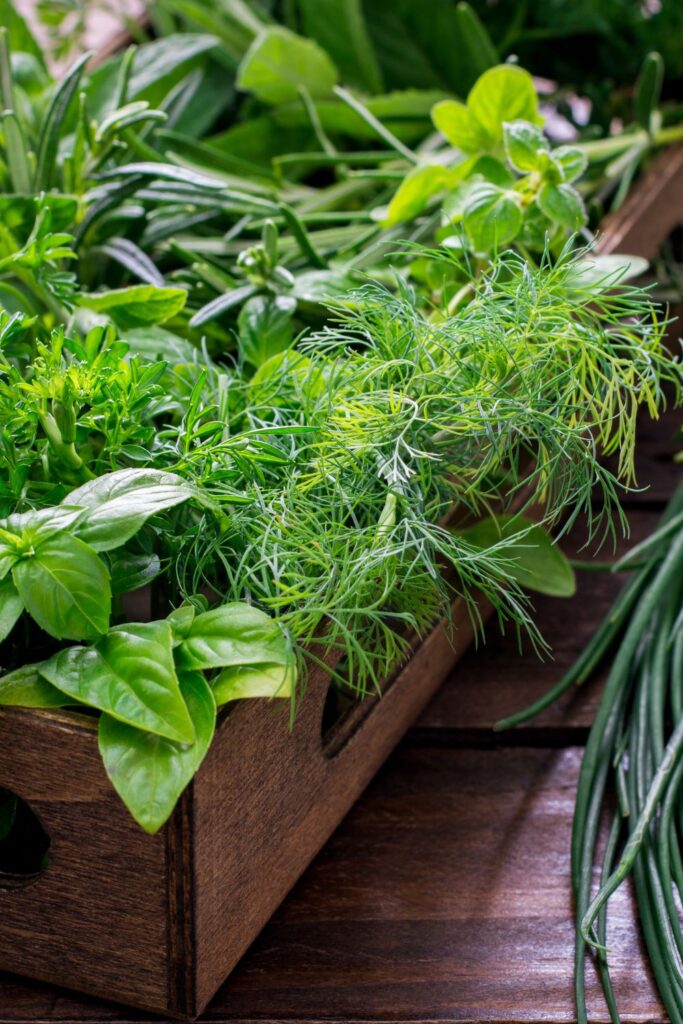
Herb Booster: My Special Homemade Fertilizer Recipe for Thriving Herbs
Ingredients:
- Banana peels
- Coffee grounds
- Eggshells
Instructions:
- Collect several banana peels, coffee grounds, and eggshells. Make sure the banana peels are ripe and the coffee grounds have been used and are dry.
- Cut the banana peels into small pieces to aid in decomposition.
- Crush the eggshells into small fragments. This will help release the nutrients more effectively.
- Mix the banana peels, coffee grounds, and crushed eggshells together in a container.
- Transfer the mixture to a blender or food processor and blend until you achieve a fine, crumbly texture. This will help break down the materials further.
- Sprinkle the homemade fertilizer around the base of your herb plants, ensuring it is evenly distributed.
- Gently work the fertilizer into the top layer of soil using a hand trowel or your fingers.
- Water your herbs thoroughly to help activate the nutrients in the homemade fertilizer and aid in their absorption.
- Repeat the application every 4-6 weeks during the growing season to provide a steady supply of nutrients.
Note: It’s important to monitor your herbs’ response to the homemade fertilizer. If you notice any adverse effects or signs of over-fertilization, such as burned leaves or stunted growth, reduce the frequency or amount of fertilizer applied.
Using this homemade fertilizer will help enrich the soil with organic matter, provide essential nutrients, and promote healthy growth for your herb plants.

For more herb plant inspiration visit:

DIY Rae Dunn Hanging Herb Planters: In this blog post over on my sister site, Celebrated Nest, I share a DIY project for creating hanging herb planters using Rae Dunn bowls. They provide a list of supplies and a step-by-step guide for making the planters. The post also includes tips for caring for plants and suggests using faux herbs as an alternative. With these DIY Rae Dunn Hanging Herb Planters, you can add a personal touch to your kitchen or outdoor space.
As you embark on this herbaceous adventure, remember that fertilizing your herbs is key to their success. Organic fertilizers, timing, slow-release options, and homemade solutions all play a part in nourishing your herbs. Whether you’re growing herbs in containers or a raised garden planter, understanding their individual preferences and providing the right nutrients will help them thrive. So put on your gardening gloves, get your hands dirty, and watch your herbs flourish as you unlock the power of fertilization. I hope you found this What You Need to Know About Fertilizing Herbs: Nurturing Nature’s Bounty post super helpful! Happy gardening!
Keep creating friends!


